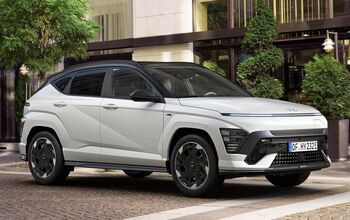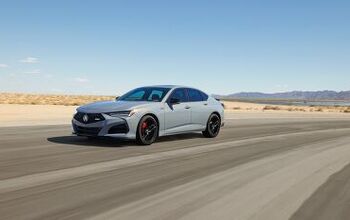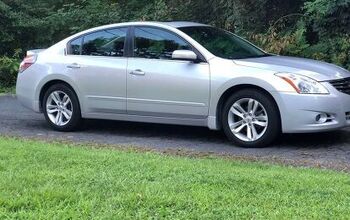Best Selling Cars Around The Globe: The Nissan Leaf Found Its Home In Norway
Last time I spoke with you, we went to our traditional monthly worldwide Roundup, spending time praising the ever-impressive performance of the Nissan Qashqai. This week I take you to Norway, the new land of the Nissan Leaf…
If the VW Golf unsurprisingly flies above the competition with 903 sales and 6.5 percent share now that the Mazda CX-5 is out of sight at the big event this month is the continuous progression of the Nissan Leaf, now #2 at 455 units and a 3.3 percent share.
This is by far the Leaf’s best ranking anywhere in the world, and no less than the fourth consecutive record month for the Nissan Leaf in Norway, after ranking #4 with 297 units and 2.8% in March, #5 with 287 sales and 2.5% in February and #9 in January.
In fact, Norway is the only country in the world where the Nissan Leaf has managed to break into the monthly Top 10!
This is another proof (if we needed one) that government incentives are the key (for now) to success for electric cars. Norwegian buyers of the Nissan Leaf benefit from priority lines to avoid congested traffic, similarly to what was done with the Toyota Prius in California.
You can be sure you’ll be the first to know if the Leaf manages the historical feat of taking the lead of the Norwegian models ranking in the coming months!
Matt Gasnier, based in Sydney, Australia, runs a blog named Best Selling Cars, dedicated to counting cars all over the world.
More by Matt Gasnier

































Comments
Join the conversation
Norwegians can afford to be as flighty as they are because of oil revenue. They're like Saudi princes sitting on gold camel saddles rimmed with Oyster Perpetual watch faces. They don't have to be smart. Finding out that they're driving electric cars is like finding out that Lynchburg, Tennessee is a dry county and everyone there is addicted to crack while the Jack Daniels is for export only.
"Norwegian buyers of the Nissan Leaf benefit from priority lines to avoid congested traffic" And there you have it - the main explanation why the Leaf is such a success in Norway. Norway has grossly neglected its infrastructure for decades (all in the name of saving the planet, of course), with traffic congestions as a result, but the Leaf allows Norwegians to use the loophole that is the priority line (again in the name of saving the planet). When that loophole is inevitably closed in a few years' time, expect new Leaf (and EV) sales to crash and resale values to plummet.
Norway give electric car buyers an exemption for new car taxes that otherwise double the price of a normal car versus low tax countries such as Germany or the USA. Then they get exemptions from annual road taxes of about $500 per year. They also are exempted from road tolls and get free parking and free battery recharging. There are also some further exemptions from business car taxes, plus of course free use of bus lanes to go around rush hour congestion. All totalled it can easily add up to benefits of $5,000 to $10,000 per year, of which about 90% goes to the wealthiest two suburbs in Norway just outside Oslo. For this gift from Norwegian taxpayers, environmental benefits are virtually nil, and surveys find that nearly all buyers have purchased the electric car as a second car that they would otherwise not have purchased, and use the car for trips that they formerly used mass-transit, bikes, walking or other clean methods of transport. I've done an academic study of this and the taxpayer return on investment using optimistic assumptions is -98% or worse.
Carlos Ghosn's master plan at work. Now he has three Leaf car and battery assembly plants worldwide. The new Leaf assembly addition to the Nissan plant in Sunderland UK is just a short ferry ride across the North Sea to Norway. Yup, Ghosn nailed it. The Brits themselves couldn't figure out why Nissan expanded their plant to make more EVs, but welcomed the investment and 474 jobs. After all, everyone usually forgets Norway. But not our canny Carlos.